
Let's talk
Still unsure? Feeling overwhelmed? Talking to a real person can give you the guidance and reassurance needed. You don’t have to do it alone. Let’s find the right doctor together.
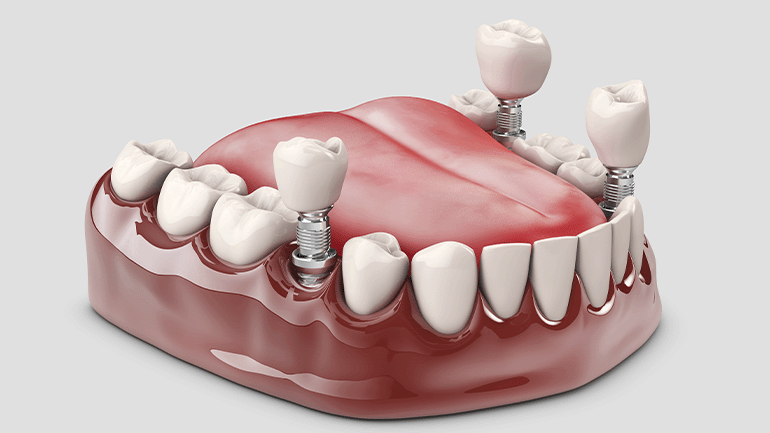
Implant teeth are artificial tooth roots prepared in order to replace missing teeth and provide a natural appearance. Implants placed in the jawbone perform functions such as chewing and crushing, just like normal tooth functions. The implant can be made to replace the missing teeth, or it can be placed after tooth extraction due to infection or inflammation.
The aim of implant treatment is to create permanent usable teeth on the jawbone. Implants are created for the construction of fixed or removable prostheses under conditions where the patient’s bone tissue is suitable and sufficient.
Implant dental treatment is one of the popular methods to have an aesthetic and natural appearance. It is of great importance for the patient that this treatment is carried out without losing time. In order to eliminate the risk of dental health problems, implant dental treatment provides long-lasting results close to natural teeth in appearance.
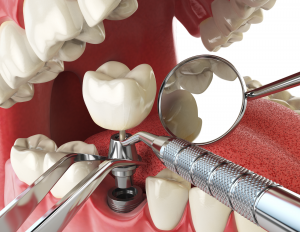
Dental implant operation is applied for damaged and fallen teeth. It is one of the most suitable treatments for patients. A dental implant can be defined as follows. With titanium nails placed in the jaw, the base of the jaw is made suitable and dental prostheses are placed on it.
In response to the question of how much dental implant will cost, it differs according to the tooth structure of the person and the procedure applied to the area.
Dental implants are applied for oral health. In the jaws where this process is not performed, resorption occurs in the area where the root of the tooth is located. It becomes necessary to make a dental implant in order to stop or reduce the resorption. Another reason for preferring this procedure is that the dental implant is more useful than other treatment methods in terms of mouth appearance. Types of dental implants vary according to the surface used.
The dental implant does not have any side effects under normal conditions. The patient undergoing dental implant treatment should pay attention to oral hygiene and should not damage the gums. Otherwise, conditions such as inflammation and infection occur in the area where the implant is applied.
A very rare side effect is that the body does not accept the implant. As a result of the immune system rejecting the implant, discomfort occurs and the implant treatment is terminated.
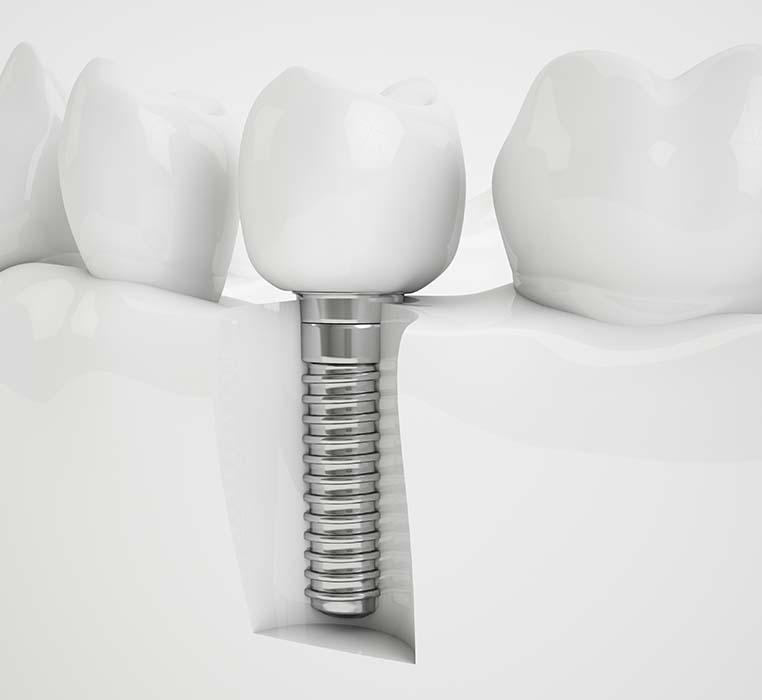
The dental implant is performed under local anesthesia and the process may take 1 or 3 months. The treatment may vary in some special cases. First of all, a pre-treatment evaluation is made and the patient is informed about the dental implant. If the patient is suitable for the conditions, the general health status of the patient will be observed.
The teeth and gum are examined, and the oral surgeon creates the treatment plan by considering all the details from the upper jaw to the position of the adjacent teeth. If there are periodontal disease-related problems, they will be treated first.
In the next step, an idea about the jaw structure of the patient is obtained. The size of the teeth and jaw are taken, and then the information will be given about where the implant will be applied.
First Stage; The patient is anesthetized and made suitable for the operation. The teeth in the area where the treatment will be applied are extracted. The bone is extracted through an incision to expose the area where the dental implant will be placed. A hole is made in the chin, then the implant site is screwed. The implant is closed with gum and covered with sutures.
Second Stage; After the first stage, the compatibility of the dental implant and the jawbone is observed. As the jawbone grows, it is expected to adapt to the dental implant surface. Depending on the conditions, this situation lasts for six months, and the patient’s condition affects the prolongation and shortening of the period.
Third Stage; If the implant needs support after the dental implant procedure, it is supported and covered with the gum. Then, it is sutured and the wound heals in two weeks.
Fourth Stage; Custom tray will be taken.
Fifth Stage; Artificial teeth are screwed or glued on screws made of titanium and placed in the jaw.
It should be added that the success rate of the implant process is quite high. The use of materials compatible with the gum tissue and the presence of healthcare technologies also make the process more comfortable for the patient.
Types of dental implants are:
If dental care is ignored after the dental implant procedure, infection and inflammation occur. Bacteria root the dental implants and introduce many negative factors.
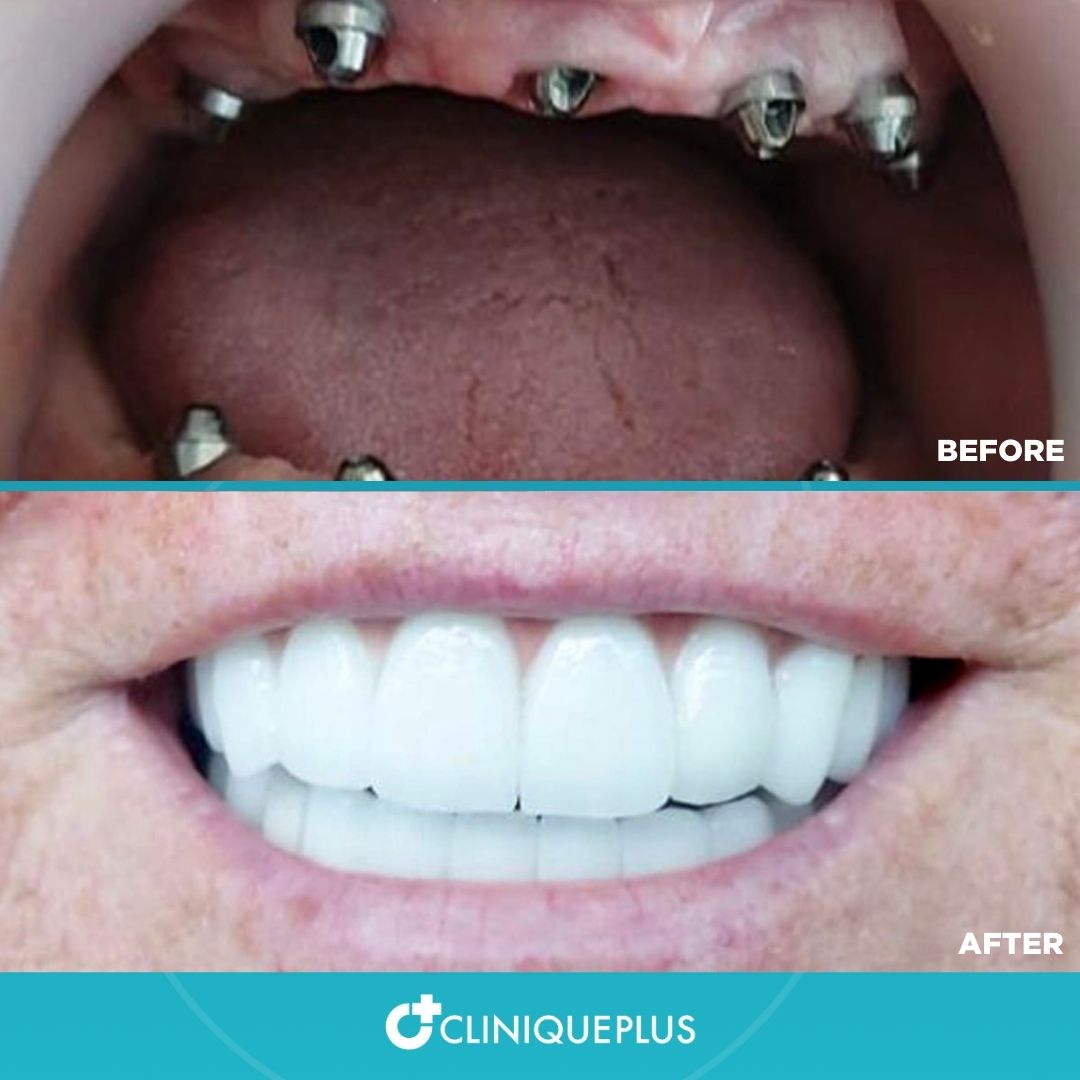
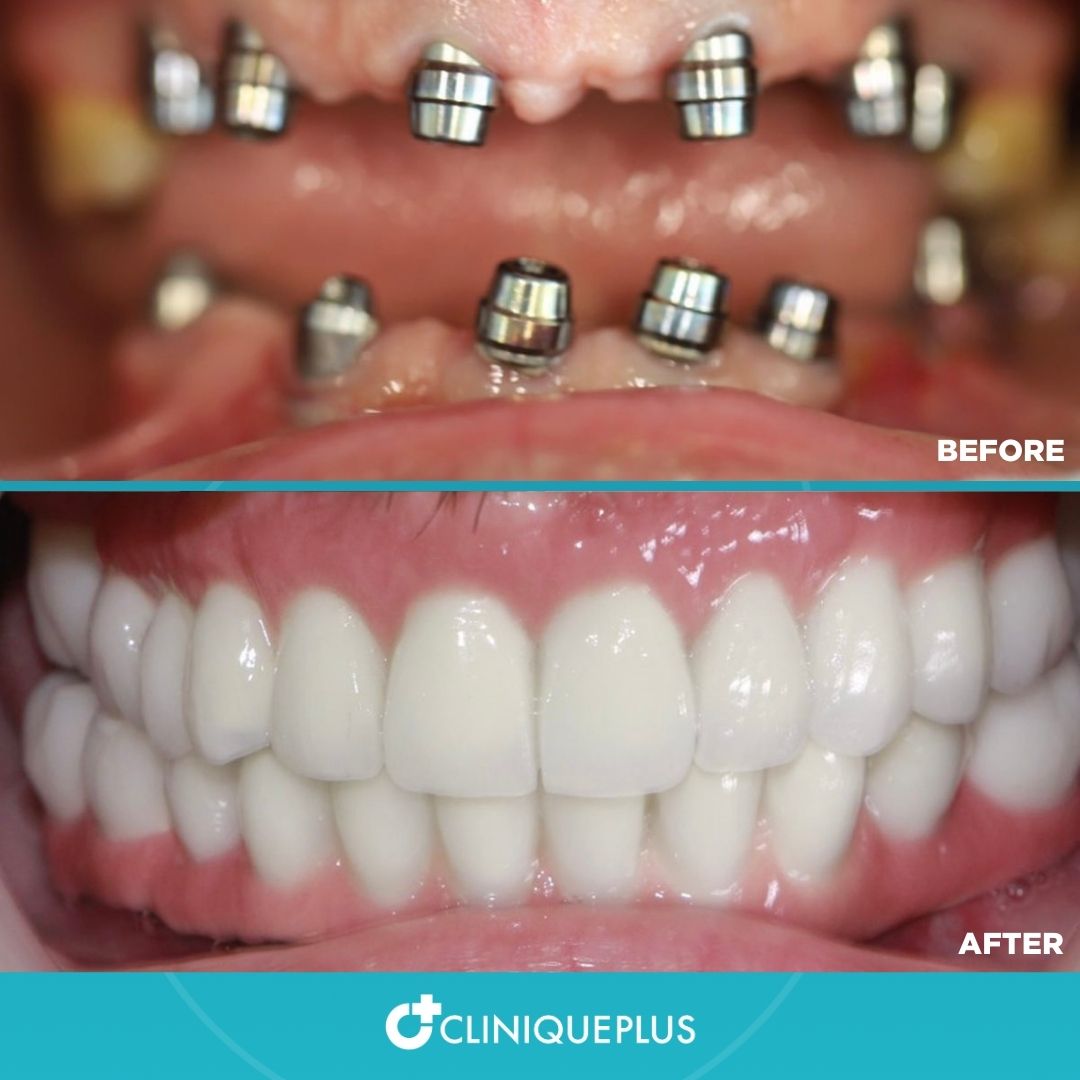
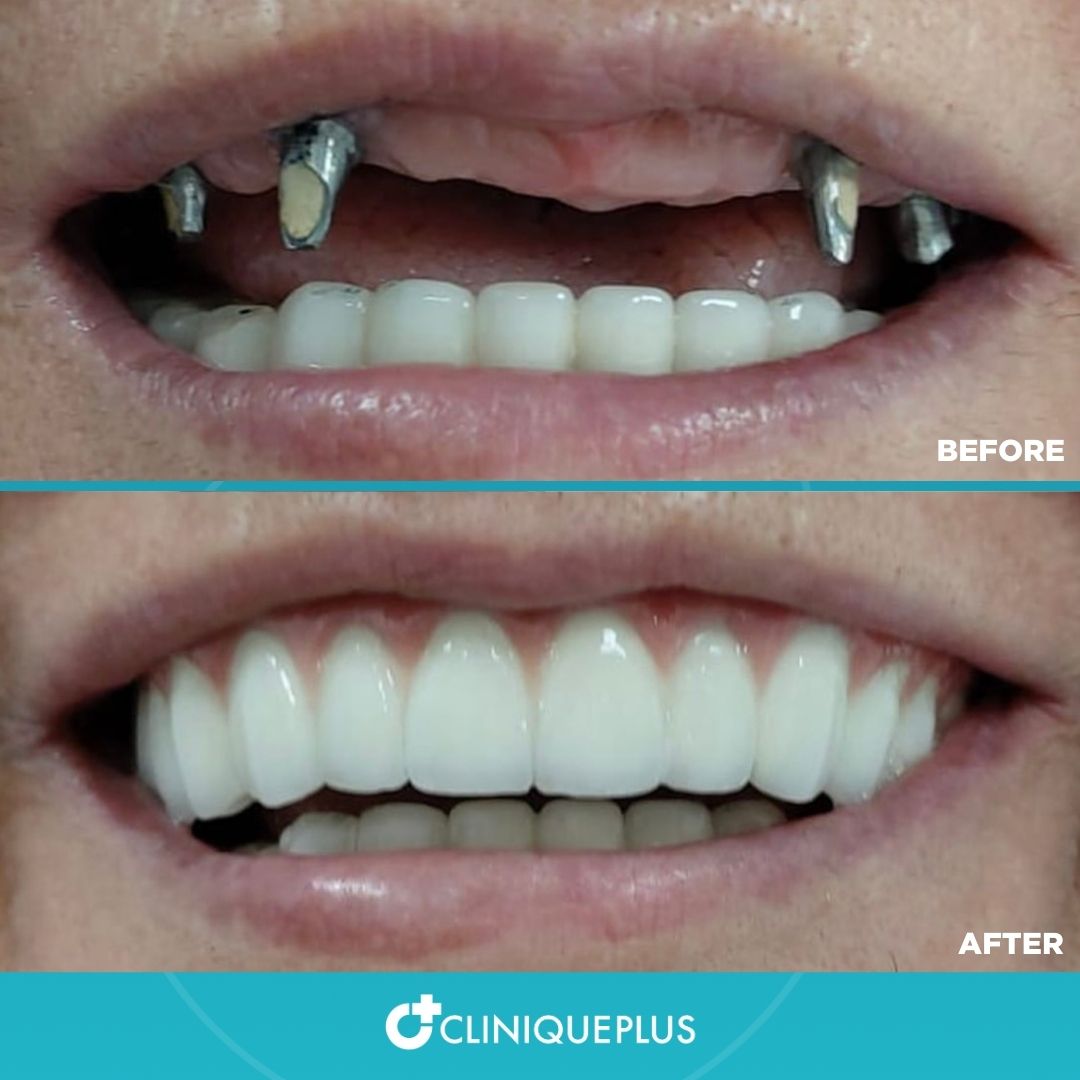

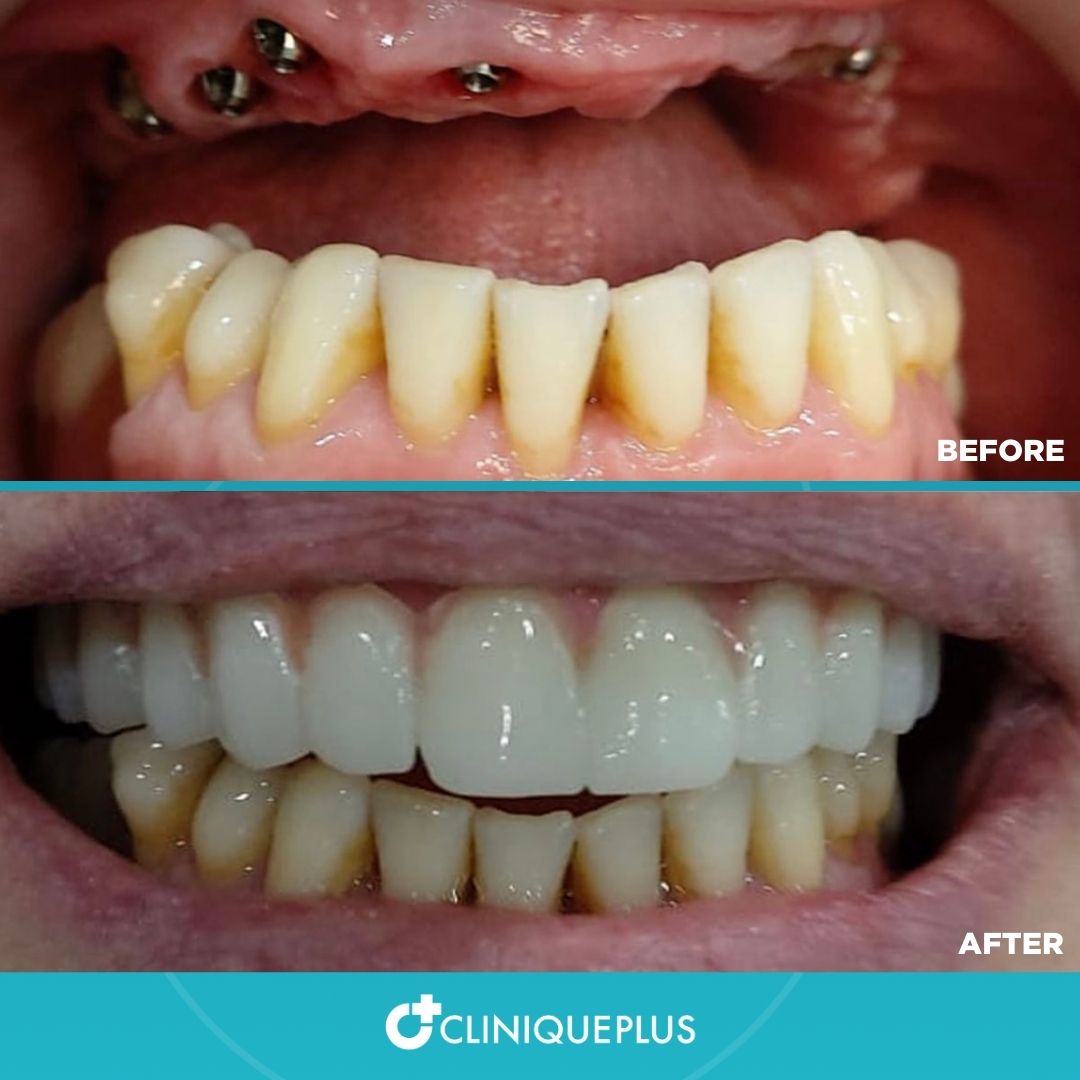
Dental implants are titanium posts surgically inserted into the jawbone to act as artificial tooth roots. They provide a stable foundation for replacement teeth, helping restore function and aesthetics.
Unlike bridges or dentures, implants are anchored into the jawbone, offering a more secure and permanent solution. They function and look more like natural teeth, improving comfort and functionality.
Good candidates typically have sufficient jawbone density, good oral health, and are in overall good health. A thorough examination by a dentist helps determine candidacy.
It involves several steps, including an initial consultation, implant placement surgery, a healing period allowing for bone integration, and finally, attaching the replacement teeth or restorations.
Local anesthesia is used during the surgery to minimize discomfort. Post-surgery, some soreness is normal and can be managed with prescribed or over-the-counter pain medications.
Recovery times can vary but typically range from a few days to a week for most activities. However, complete healing and fusion of the implant with the bone may take several months.
With proper care, dental implants can last a lifetime. Maintaining good oral hygiene and regular dental check-ups are crucial for their longevity.
Possible risks include infection, nerve damage, or implant failure. These risks are minimized with careful planning and when the procedure is performed by an experienced professional.
Yes, dental implants can support individual crowns, bridges, or full dentures, providing a reliable solution for replacing multiple missing teeth or entire dental arches.
Look for clinics with experienced implant specialists, a history of successful procedures, and a patient-centered approach ensuring comfort, safety, and personalized care.


Error: Contact form not found.

Still unsure? Feeling overwhelmed? Talking to a real person can give you the guidance and reassurance needed. You don’t have to do it alone. Let’s find the right doctor together.